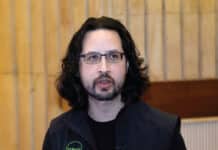
IDC expects worldwide revenue for open source software to rise to $5.8 billion by 2011. Foreseeing the strong promise open source technology holds, Sonata has set up an Open Source Center of Excellence (CoE to evaluate and integrate various Open Source tools to deliver low cost solutions to its customers, with a faster time-to-market. Aniruddha Banerjee, head, technology services business, Sonata Software, talks to Vanisha Joseph of LFY about open source as a fertile terrain for the developer community.
Q: What opportunities exist for FOSS and Linux experts in the IT industry? What are the reasons for this sudden demand?
A: Open source is becoming the heart of enterprise computing, as it is the core of business applications in enterprises, allowing cost savings and improving processes. There is an increasing demand for free software tools as they are generally available at no cost and with functionalities similar to those available in commercial tools. With open source software and advancements in virtualised architectures, organisations gain the freedom to choose what applications and infrastructure software they want to evaluate (at no cost), which of these solutions they want to deploy and how they want to pay for that deployment — on-site licenses, hosted solutions, or software as a service (SaaS). Open source applications are now available for all common types of enterprise software-from databases, application servers and Web servers, to Web browsers and office applications, to network monitoring software and security software. The code base is stable, increasing the reliability of the software.
A Gartner report predicts the global market for open source software solutions to touch $6.4 billion this year. India is beginning to reap the benefits of open, community-driven technologies. The demand for free, open systems is growing and India possesses the innovation and expertise to deliver on this demand. An even stronger commitment to open source technologies from India’s government and leading businesses can help the country further capitalise on this opportunity.
It has been proven that open source software provides better value, lower costs and improved security, addressing enterprise considerations today. As enterprises adopt open source solutions, they seek employees with familiarity and competence in the same. Thus, there is a huge demand and growing opportunity for FOSS/Linux experts in the industry. The trained technical workforce meets only 1/3rd of all Linux jobs at present, thus, the future is bright for open source enthusiasts. A confluence of factors is driving such demand. While it’s easy to point to a tight economy as a key driver pushing organisations to open source, the increasing influence of an agile style of development and delivery, rise of cloud computing, maturity of open source tools themselves and the speed at which they keep up with new application technologies are crucial factors driving this demand.
Q: Do you feel using Linux and FOSS can add value to the process of project development? If so, please state a few advantages of using Linux/FOSS platforms or technology tools?
A: The most obvious benefit of free and open source platforms is cost. These platforms are easy to install, use, update and come without the heavy chains of licensing issues. The use of open source tools/platforms during a project development process can reduce the overall R&D costs, increase productivity, improve efficiency, facilitate interoperability and encourage innovation. Due to the availability of a wide array of FOSS business applications and tools today, enterprises and independent software vendors (ISVs) are benefiting in many ways. Open source offers unsurpassed security, lower cost of ownership, application flexibility, and innovation and scalability, which make it a perfect alternative for organisations looking for high performance and value. Further, enterprises get unlimited time to evaluate the features and functionalities before taking a final decision.
Q: As stated by you, cost is a significant reason for companies to adopt open source for projects. Elaborate.
A: The shift to open source applications and commodity infrastructure is as inevitable as the rising of the tide, as it makes good economic sense. Open source products are significantly less expensive than proprietary ones because a wide community of interested parties share the development costs. Open source software can also speed time to market and deliver substantially lower licensing and maintenance costs than other approaches. Further, it delivers comparable features and quality as well as greater deployment flexibility, enabling a more expansive use in enterprise applications.
More than 56 per cent of all enterprise users surveyed in a Forrester Report (“Open Source Paves the Way for the Next Generation of Enterprise IT”) said cost reduction was their primary motivation for using open source, and 87 per cent of them said their cost-saving expectations had been “met or exceeded.” Thus, the cost savings is crucial and even substantial.
Q: What are the key tools that your company is using for project development?
A: The open source tools we use are PHP, Ruby, Java, Perl, Python, MySQL, PostgreSQL, Ingres, Red Hat Enterprise Linux, SUSE Enterprise Linux, Fedora, Ubuntu, Debian etc.
Q: Elaborate briefly on your open source offerings.
A: For many years, Sonata has been a frontrunner in leveraging open source software as a platform for building software applications, helping its diverse customer base achieve productivity and cost benefits. Sonata currently has various full lifecycle projects that work exclusively on the open source tools stack. Sonata offers the following open source solutions and services: consulting services, designing / architecture and development of solutions on Java, LAMP stack, business intelligence and other open source tools, migration to and from open source tools to other tools, integration of open source tools with third-party product(s) and tools.
Q: Do you involve developers from the community or take any help from them during project development?
A: We have used development community forums to resolve issues we faced during project development. For instance, one of our projects involving opensource e-commerce applications needed to achieve single application instance to be accessed by different users through URL redirection. To achieve this we took help from the open source community and forums. In another instance, we needed to tweak an opensource logging tool component to handle multi-tenant scenario in SaaS application, and we once again approached the community for the same.
Q: What has been the contribution so far by developers at Sonata Software towards open source?
A: Developers at Sonata have contributed to the open source community to enhance certain products: for instance, http://sourceforge.net/forum/forum.php?forum_id=562672 is one such example where we have added custom reporting that is needed for open source requirement management tool and posted on this forum for others to use. Open Source CoE at Sonata Software enhanced the OSRMT as per GPL for generation of requirement traceability matrix.
Q: What challenges do you face today with regards to the adoption of open source technology? How do you intend to resolve them?
A: Some of the typical issues faced by our team are lack of updated documentation, lack of user manuals, no comments in code, different coding styles and so on. Sonata CoE has very senior architects and developers who have learnt to overcome these problems and move on by taking control of the tool. There are innumerable FOSS tools available in areas like content management system (CMS). In such a case, we use only the ones that are best and have essential features that are needed for any CMS tool.
Q: What kind of up gradation/training programmes do you offer your developers for sharpening their skill sets?
A: Sonata CoE team is constantly involved in identifying and exploring new open source tools that can be adopted for various projects or internal use. The team stays abreast of technological advancements, new tools and new versions. We organise training programs for our teams on specific tools based on the project needs. This also motivates them to come up with best practices and usage guidelines for those tools that do have such artifacts available.
Q: Do you have any team involved in R&D for any of your open source projects?
A: Sonata has set up an open source Center of Excellence (CoE). Sonata’s Open Source CoE has been constantly evaluating and integrating various Open Source tools to deliver low cost solutions to its customers, with a faster time-to-market. Sonata has successfully built a collaboratively integrated open source development and platform spanning the entire software lifecycle. This platform helps customers and teams accelerate their software development, release and software support processes, while improving their productivity and product quality. Sonata’s open source CoE has also built re-usable components that can be used in integration with third-party tools. This includes an open source BI framework as solution accelerator that prevents a solution from going through multiple iterations. We are currently exploring the possibility of working on an R&D project on open source storage management technology. Our teams are also working on product R&D for our customers; these projects are based solely on OS tools stacks.
Q: What skill sets do you look for in a FOSS expert?
A: The teams working on FOSS stacks need to be fast in understanding the overall architecture of the tool stack that they need to modify. In case the FOSS tool is a commercial application, then the professional should have domain expertise in that area to assess and adapt to the product functionality for a project requirement.
Q: How many Linux/FOSS developers are working at present in your company?
A: Currently, we have a team of 150 Linux/FOSS developers working with us on different projects. Sonata has some ISV customer projects that are purely being developed using open source tool stacks.
Q: Looking ahead, what kind of solutions are you seeking from the open source community?
A: The existing tools need to be more stable in the business application areas. We also require solutions in areas such as business intelligence (BI), reporting, Web 2.0, service-oriented architecture (SOA), infrastructure monitoring, Web monitoring, data security, e-mail security and cloud computing.
Q: What advice would you give other heads of operations of technology firms who are planning to try open source tools for software development?
A: Open source solutions are becoming more widely accepted and implemented at the enterprise level. There are many factors that need to be considered when one decides to explore open source solutions. It is essential to perform careful research and analysis of both the proprietary and open source software available to ensure that any solution selected meets current and future needs of the business and is a financially sound decision. The technology firms should also look for partners who will be able to help them evaluate and adopt the tools in the best possible way.
Q: What is your message to the community and the developer fraternity?
A: The open source movement has changed the course of modern software development. Certainly, Linux has been the most prominent example so far, but there is far more to come. Open source continues to infiltrate mainstream development at an even faster pace. The community should look at contributing towards the development of tools that are stable, with up-to-date documentation, for better adoption.
|
‘Future Is Bright For Open Source Enthusiasts’ IDC expects worldwide revenue for open source software to rise to $5.8 billion by 2011. Foreseeing the strong promise open source technology holds, Sonata has set up an Open Source Center of Excellence (CoE to evaluate and integrate various Open Source tools to deliver low cost solutions to its customers, with a faster time-to-market. Aniruddha Banerjee, head, technology services business, Sonata Software, talks to Vanisha Joseph of LFY about open source as a fertile terrain for the developer community. Q: What opportunities exist for FOSS and Linux experts in the IT industry? What are the reasons for this sudden demand? A: Open source is becoming the heart of enterprise computing, as it is the core of business applications in enterprises, allowing cost savings and improving processes. There is an increasing demand for free software tools as they are generally available at no cost and with functionalities similar to those available in commercial tools. With open source software and advancements in virtualised architectures, organisations gain the freedom to choose what applications and infrastructure software they want to evaluate (at no cost), which of these solutions they want to deploy and how they want to pay for that deployment — on-site licenses, hosted solutions, or software as a service (SaaS). Open source applications are now available for all common types of enterprise software-from databases, application servers and Web servers, to Web browsers and office applications, to network monitoring software and security software. The code base is stable, increasing the reliability of the software. A Gartner report predicts the global market for open source software solutions to touch $6.4 billion this year. India is beginning to reap the benefits of open, community-driven technologies. The demand for free, open systems is growing and India possesses the innovation and expertise to deliver on this demand. An even stronger commitment to open source technologies from India’s government and leading businesses can help the country further capitalise on this opportunity. It has been proven that open source software provides better value, lower costs and improved security, addressing enterprise considerations today. As enterprises adopt open source solutions, they seek employees with familiarity and competence in the same. Thus, there is a huge demand and growing opportunity for FOSS/Linux experts in the industry. The trained technical workforce meets only 1/3rd of all Linux jobs at present, thus, the future is bright for open source enthusiasts. A confluence of factors is driving such demand. While it’s easy to point to a tight economy as a key driver pushing organisations to open source, the increasing influence of an agile style of development and delivery, rise of cloud computing, maturity of open source tools themselves and the speed at which they keep up with new application technologies are crucial factors driving this demand. Q: Do you feel using Linux and FOSS can add value to the process of project development? If so, please state a few advantages of using Linux/FOSS platforms or technology tools? A: The most obvious benefit of free and open source platforms is cost. These platforms are easy to install, use, update and come without the heavy chains of licensing issues. The use of open source tools/platforms during a project development process can reduce the overall R&D costs, increase productivity, improve efficiency, facilitate interoperability and encourage innovation. Due to the availability of a wide array of FOSS business applications and tools today, enterprises and independent software vendors (ISVs) are benefiting in many ways. Open source offers unsurpassed security, lower cost of ownership, application flexibility, and innovation and scalability, which make it a perfect alternative for organisations looking for high performance and value. Further, enterprises get unlimited time to evaluate the features and functionalities before taking a final decision. Q: As stated by you, cost is a significant reason for companies to adopt open source for projects. Elaborate. A: The shift to open source applications and commodity infrastructure is as inevitable as the rising of the tide, as it makes good economic sense. Open source products are significantly less expensive than proprietary ones because a wide community of interested parties share the development costs. Open source software can also speed time to market and deliver substantially lower licensing and maintenance costs than other approaches. Further, it delivers comparable features and quality as well as greater deployment flexibility, enabling a more expansive use in enterprise applications. More than 56 per cent of all enterprise users surveyed in a Forrester Report (“Open Source Paves the Way for the Next Generation of Enterprise IT”) said cost reduction was their primary motivation for using open source, and 87 per cent of them said their cost-saving expectations had been “met or exceeded.” Thus, the cost savings is crucial and even substantial. Q: What are the key tools that your company is using for project development? A: The open source tools we use are PHP, Ruby, Java, Perl, Python, MySQL, PostgreSQL, Ingres, Red Hat Enterprise Linux, SUSE Enterprise Linux, Fedora, Ubuntu, Debian etc. Q: Elaborate briefly on your open source offerings. A: For many years, Sonata has been a frontrunner in leveraging open source software as a platform for building software applications, helping its diverse customer base achieve productivity and cost benefits. Sonata currently has various full lifecycle projects that work exclusively on the open source tools stack. Sonata offers the following open source solutions and services: consulting services, designing / architecture and development of solutions on Java, LAMP stack, business intelligence and other open source tools, migration to and from open source tools to other tools, integration of open source tools with third-party product(s) and tools. Q: Do you involve developers from the community or take any help from them during project development? A: We have used development community forums to resolve issues we faced during project development. For instance, one of our projects involving opensource e-commerce applications needed to achieve single application instance to be accessed by different users through URL redirection. To achieve this we took help from the open source community and forums. In another instance, we needed to tweak an opensource logging tool component to handle multi-tenant scenario in SaaS application, and we once again approached the community for the same. Q: What has been the contribution so far by developers at Sonata Software towards open source? A: Developers at Sonata have contributed to the open source community to enhance certain products: for instance, http://sourceforge.net/forum/forum.php?forum_id=562672 is one such example where we have added custom reporting that is needed for open source requirement management tool and posted on this forum for others to use. Open Source CoE at Sonata Software enhanced the OSRMT as per GPL for generation of requirement traceability matrix. Q: What challenges do you face today with regards to the adoption of open source technology? How do you intend to resolve them? A: Some of the typical issues faced by our team are lack of updated documentation, lack of user manuals, no comments in code, different coding styles and so on. Sonata CoE has very senior architects and developers who have learnt to overcome these problems and move on by taking control of the tool. There are innumerable FOSS tools available in areas like content management system (CMS). In such a case, we use only the ones that are best and have essential features that are needed for any CMS tool. Q: What kind of up gradation/training programmes do you offer your developers for sharpening their skill sets? A: Sonata CoE team is constantly involved in identifying and exploring new open source tools that can be adopted for various projects or internal use. The team stays abreast of technological advancements, new tools and new versions. We organise training programs for our teams on specific tools based on the project needs. This also motivates them to come up with best practices and usage guidelines for those tools that do have such artifacts available. Q: Do you have any team involved in R&D for any of your open source projects? A: Sonata has set up an open source Center of Excellence (CoE). Sonata’s Open Source CoE has been constantly evaluating and integrating various Open Source tools to deliver low cost solutions to its customers, with a faster time-to-market. Sonata has successfully built a collaboratively integrated open source development and platform spanning the entire software lifecycle. This platform helps customers and teams accelerate their software development, release and software support processes, while improving their productivity and product quality. Sonata’s open source CoE has also built re-usable components that can be used in integration with third-party tools. This includes an open source BI framework as solution accelerator that prevents a solution from going through multiple iterations. We are currently exploring the possibility of working on an R&D project on open source storage management technology. Our teams are also working on product R&D for our customers; these projects are based solely on OS tools stacks. Q: What skill sets do you look for in a FOSS expert? A: The teams working on FOSS stacks need to be fast in understanding the overall architecture of the tool stack that they need to modify. In case the FOSS tool is a commercial application, then the professional should have domain expertise in that area to assess and adapt to the product functionality for a project requirement. Q: How many Linux/FOSS developers are working at present in your company? A: Currently, we have a team of 150 Linux/FOSS developers working with us on different projects. Sonata has some ISV customer projects that are purely being developed using open source tool stacks. Q: Looking ahead, what kind of solutions are you seeking from the open source community? A: The existing tools need to be more stable in the business application areas. We also require solutions in areas such as business intelligence (BI), reporting, Web 2.0, service-oriented architecture (SOA), infrastructure monitoring, Web monitoring, data security, e-mail security and cloud computing. Q: What advice would you give other heads of operations of technology firms who are planning to try open source tools for software development? A: Open source solutions are becoming more widely accepted and implemented at the enterprise level. There are many factors that need to be considered when one decides to explore open source solutions. It is essential to perform careful research and analysis of both the proprietary and open source software available to ensure that any solution selected meets current and future needs of the business and is a financially sound decision. The technology firms should also look for partners who will be able to help them evaluate and adopt the tools in the best possible way. Q: What is your message to the community and the developer fraternity? A: The open source movement has changed the course of modern software development. Certainly, Linux has been the most prominent example so far, but there is far more to come. Open source continues to infiltrate mainstream development at an even faster pace. The community should look at contributing towards the development of tools that are stable, with up-to-date documentation, for better adoption. |



















































































It’s very inspirational interview.That’s leads to the development of more Open Source Products in the Software Industry.
[…] Read the rest here: "The Future Is Bright For Open Source Enthusiasts" – LINUX For You […]